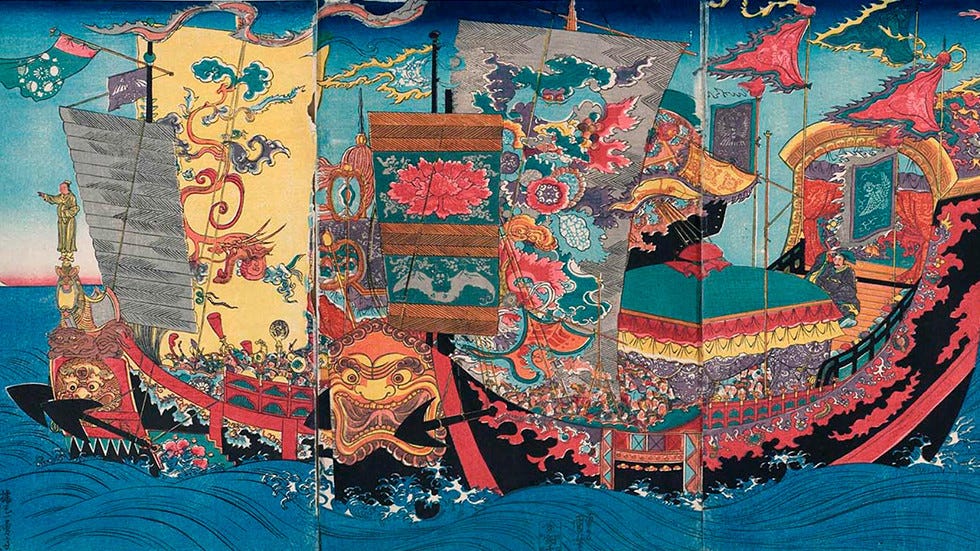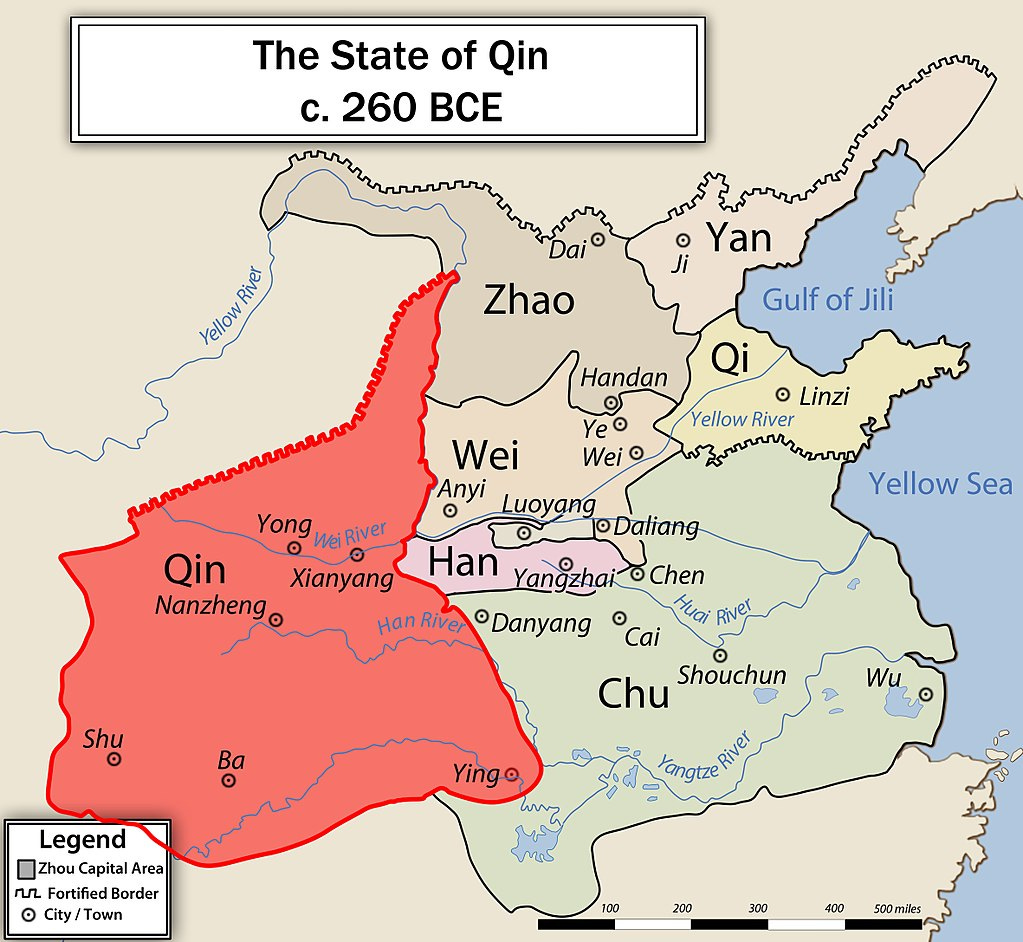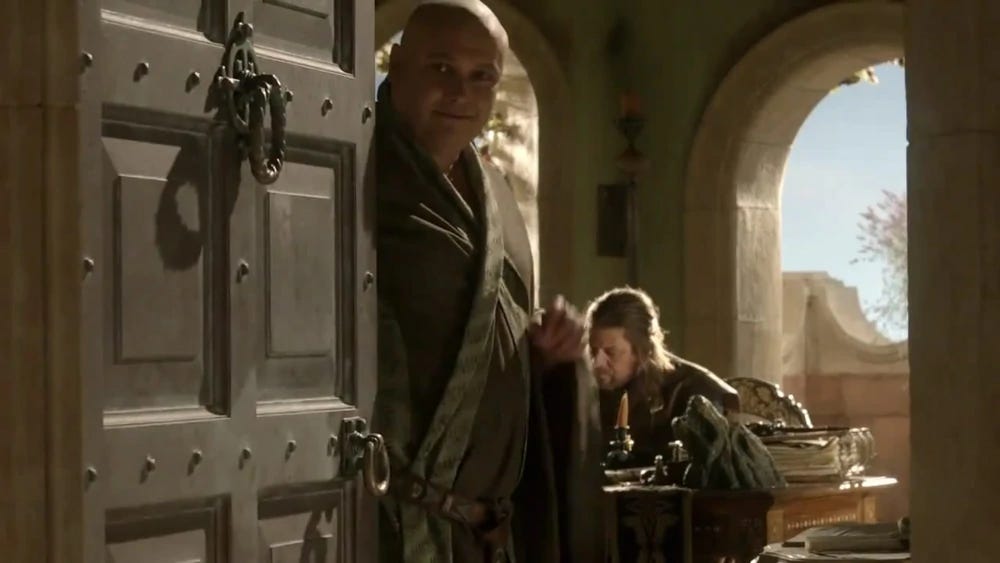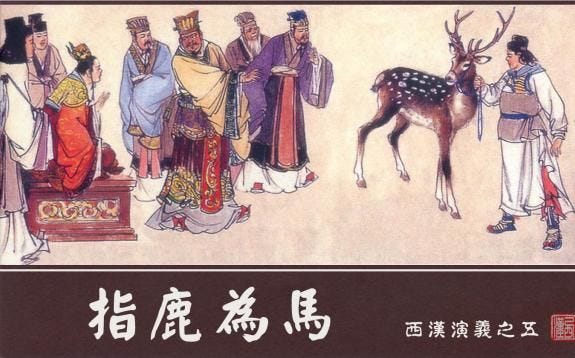To Point at a Deer and Call it a Horse
The Information Wars Part I
"Keep your friends close, and your enemies closer." -Michael Corleone, The Godfather Part II
During the third century BC, the Qin state conquered the other six states of China (Han, Zhao, Yan, Wei, Chu, and Qi) in succession after several decades of fighting. After a brutally won unification in 221 BC, Qin Shi Huang became the first ruler of China to call himself Emperor, a title to be used for more than two-thousand years afterward. His rise to power and reign were capable and incisive, involving military prowess, politics, and survival instincts. Aside from uniting the seven warring states, he consolidated power by executing scholars and burning books in the hands of rivals. Once in power, Emperor Qin Shi Huang connected various barriers that held out Mongolian warlords into the singular Great Wall of China. He survived multiple assassination attempts, ruling with strength for 11 years until his passing.
As was common practice in China, leaders relied on a bureaucracy to handle society of the kingdom. Such a bureaucracy needed certain moral strengths, much of which was ingrained through Confucianist teachings. But such a bureaucratic class itself represented great knowledge and power, and so could never be fully trusted by the ruling families. Hence eunuchs were employed as a buffer between the leaders of kingdoms and dynasties, and the people over which they ruled.
The word 'eunuch' derives from the Latin eunuchus and Greek eunoukhos: the "castrated man". But euno was "bed", and eunuchs, not having the physical ability to betray mating lines, or cuckold the harem, were employed in some cultures as "guardians of the bedchamber". In other cultures, eunuchs were used as administrators, guards, and soldiers. Turning boys into eunuchs seems to have represented a game theoretic equilibrium in early, expansive civilizations.
Without the ability to accrue power to pass to an heir, eunuchs were generally trusted with more of the powers closest to many rulers. But Game of Thrones fans may know where this can head.
In 210 BC, while on a quest to procure an elixir of immortality that Taoist "magicians" led him to believe was guarded by a sea monster (really), Emperor Qin Shi Huang died. This is where the tale of the eunuch Zhao Gao begins. As with most ancient history, there are varying and conflicting narratives of the life of Zhao Gao. In the grand scheme, our thematic tale might just as easily be apocryphal and still as instructive. I choose here to cobble together the most consistent amalgam of numerous versions encountered.

As near neighbors, the Zhao state stood as an important rival to Qin power. During the Warring States period, Zhao Gao, a distant member of the Zhao royal family, was taken from his parents as criminal punishment, castrated, and educated in law to serve as a government eunuch official. Talented as a legal scholar, Zhao Gao rose steadily in his position, perhaps even dodging a death sentence for a criminal offense when pardoned by Emperor Qin Shi Huang. Zhao Gao became important enough to the emperor to personally mentor his sons on law and other matters. This closeness to the seat of power allowed Zhao Gao to plot his own course for China.
Since Qin Shi Huang's death took place so far from home, Zhao Gao was able to utilize his position as direct servant of the emperor to delay news to the royal court for two full months. Qin Shi Huang's eldest son Fusu would ordinarily take the throne, but Zhao Gao saw in Qin Shi Huang's younger son, Huhai, a man he could control. Huhai falsified the emperor's will, and a decree was sent to the royal palace that Huhai take power, focing Fusu to commit suicide. Some versions of the story have Huhai murdering Fusu, while simply using the decree as a cover story. The strong Meng general's, one of whom was previously placed the death penalty on Zhao Gao, were also executed or forced into suicide. Zhao Gao took the greatest level of proxy power ever achieved by a eunuch, Zheng He included, essentially directing the Qin family to castrate itself.
From there, Zhao Gao's story only gains in intrigue. In 210 BC, Huhei was anointed Emperor Qin Er Shi, second emperor of the Qin dynasty. Thirsting for more power, or perhaps seeking to destroy the sons and daughters of the man who ran over the Zhao state to unify China, and elevated to an even higher official position under Qin Er Shi, Zhao Gao schemed against him, too. Zhao Gao worked up deeper levels of support network for his ambitions, but required a loyalty test to know that he could elevate his treacherous game plans. Once invited on a horse ride with Qin Er Shi and others of high power and status, Zhao Gao rode out on the back of a deer. The surprised emperor was bound to comment, "That is a deer."
"No, emperor, this is a horse."
Such a lie, so obviously false, but delivered with perfection, can gaslight to a level that causes distortions of reality. Here, it served a more direct purpose. The conversation quickly progressed, with some among the riders calling the mount a deer, while those loyal to Zhao Gao pointed to the deer, and called it a horse.
Zhao Gao and his allies in the group made note of those who called the deer what it was, and soon after executed each of them. Crippled as a ruler, Qin Er Shi's regime fell to rival powers only three years after his ascension. His successor, Ziying, managed to hold power as emperor for only 46 days. After less than 15 years, the Qin dynasty fell apart early in 206 BC, ending the first and shortest dynasty of China's unified Imperial era.
The Chinese idiom, "point to a deer and call it a horse," encapsulates the deliberate falsehood, whether interpreted in treachery or in the art of defeating a tyrant. Perhaps it should be better known by everyone in today's political and media era.





A deer is a horse.
Vaccines are safe, effective, and the only way out of this pandemic.
Lia Thomas is a woman.
2+2=5.
Good start for your InfoWa...... Information Wars series!